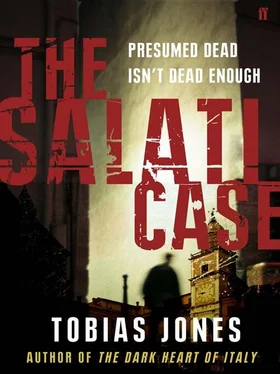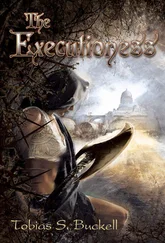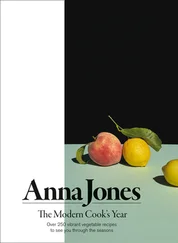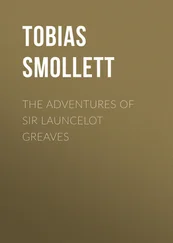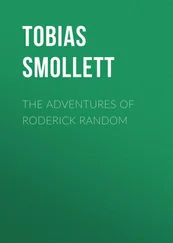She looked at me with a sour look. ‘I’ve been through all this before. He got on a train that Saturday morning and I never saw him again.’
‘He never came back?’
‘When he wasn’t home that night, I assumed he had stayed with his mother. It happened often enough.’
‘He didn’t call?’
‘No. And I wasn’t going to call her house.’
‘And when did you report him missing?’
‘On the Monday night. He missed a shift at the hotel. He didn’t always come home, but he never missed a shift at the Palace. He was due to do the Monday night, and he didn’t show. They called me and-’
‘What did you do?’
‘I called his mother.’
‘I thought you didn’t do that kind of thing.’
She stared at me through her thick eyelashes.
‘What did she say?’ I asked.
‘That she had dropped him at the station on the Saturday night.’
Her eyes had filled up and were about to overflow. As she blinked tears fell on to her cheeks, bringing with them burnt matchsticks of mascara. ‘That’s when it all started. She made all manner of accusations.’
‘Meaning?’
‘She thought I had failed to look after him. Umberto was coming round here every other night. So was Tonin.’
‘Who?’
‘Some old guy. Massimo Tonin.’
‘What did he want?’
‘Same as all the others. Wanted to know where Ricky was.’
‘Who was he?’
She laughed. ‘Ricky used to call any new friends investors. He was probably in on some project or other. He was from one of those tiny villages near the Po. He came round here demanding to know where Ricky was.’
‘When?’
‘The first week after he disappeared. Made the same sort of accusations that everyone else has made, said I must have seen him, must know something.’
‘Why?’
‘I assume he thought I was to blame.’
‘When was this?’
‘Towards the end of that week. Once it had been made public that Ricky was missing. He seemed desperate to get hold of him.’
‘And where will I find this Massimo Tonin?’
‘He lived somewhere near the city. La Bassa I think. They had only met a few months before.’
‘Come here,’ I said, taking hold of her upper arm. She tried to shrug off my grip, but I tightened it and she stamped her heels. I walked her towards the car. I opened the door and pushed her into the passenger seat. ‘Don’t move,’ I said, walking round to the boot. I pulled out the camera, switched it on and sat behind the wheel. I held the thing towards her. She looked at the images: mourners in black walking towards the cemetery.
I flicked through the photographs and she started naming them. ‘There’s Umberto and Roberta. The boys. I haven’t seen them for years.’ She took the camera in both hands and looked at the boys’ faces.
‘You didn’t want to go to the funeral?’
‘Whatever else I am, I’m not a hypocrite,’ she said.
‘And what about Elisabetta? Doesn’t she have a right to go to her own grandmother’s funeral?’
The woman looked at me and, for the first time, looked guilty. It was clear she hadn’t even told her daughter yet.
I took the camera back and sped through the photographs. ‘Tell me if you see Tonin.’
‘Go slower.’
My thumb kept clicking the shift. People got larger on the screen as they got closer.
‘That’s him.’
It wasn’t what I had expected. He was a tall, thin man with white hair. He had an overcoat with large shoulders, which only made his legs look thinner. The photograph showed him walking on his own. His face was a long way off, but it looked set against the world. A hard, marble face with a long, thin nose.
‘You sure?’
‘Absolutely.’
‘Family?’
‘Don’t know.’
I nodded. I had to talk to Tonin. I could make an educated guess about what had been going on, but it was no more than a guess. Silvia Salati’s husband had died in 1995 and suddenly another man was getting close to young Riccardo. Someone was setting him straight financially.
‘How old is Elisabetta now?’
She shot a defensive stare at me, as if she wanted her daughter kept out of it. ‘Fifteen.’
‘And you’ve got other children?’
‘A boy. I married a few years ago.’
‘Congratulations,’ I said, sounding insincere. ‘When exactly?’
‘A year or two after all that.’ She shrugged.
‘I heard it was just a year.’ It might have come out more mean than I intended, because she pointed a finger at me and sneered.
‘There was no overlap.’
I leaned across her to open the door. ‘I’ll be in touch. If you think of anything, call me.’ I held out one of my cards. She took the card but didn’t move. She sat there for a few seconds, thinking. She looked at me as if sizing me up. ‘If you’re going to drag us through all this again I implore you, for the sake of my family, do it quickly.’
I nodded and started up the engine.
The Hotel Palace was dead in winter. In the foyer two boys were playing football with a screwed-up piece of paper. Their uniforms were unbuttoned and they looked like schoolchildren in a playground. They stopped when they saw me and one of them went behind the front desk.
‘Any grown-ups around?’ I asked.
The boy pointed through a doorway. It led through to a windowless box of a room. A man was pulling glasses out of a cardboard box and lining them up behind the bar.
‘Can I get a drink?’
The man grunted. ‘What do you want?’ The accent was Calabrese.
‘Give me a malvasia.’
The barman grunted again as he bent down to the fridge and pulled out a bottle. As he uncorked it, he spilt some on to his knuckles. He wiped his fingers on his oily apron, then picked up the bottle again and poured the yellow fizz into a flute.
‘Three euros.’
I passed him a twenty. ‘Keep the change.’
The man looked at me with tired eyes. ‘What are you after, Mister?’
‘Call it research. I’m trying to track down a character who used to live in Rimini in the early 1990s.’ I pulled out the photo. ‘He used to work here. Name’s Riccardo Salati. Had a woman from around here called Anna. Anna di Pietro.’
‘Who are you?’
‘Castagnetti. I’m an investigator.’
‘What do you want?’
‘I want to talk to the manager. Or preferably someone who worked here in the early 1990s.’
‘The manager’s not around.’
‘What’s his name?’
The barman made a tutting sound with his tongue as if even this much was confidential. I looked over his shoulder and read the licence granting the bar permission to sell alcohol. The name said Lo Bue.
‘Is the manager Lo Bue by any chance?’
‘Rings a bell.’
‘How long has he been here?’
‘Longer than me.’
‘Far back as ’95?’
‘How would I know?’
‘And where is he?’
‘He’s not around. He doesn’t show much during winter.’
‘And if you’ve got to phone him, where do you call?’
‘He doesn’t like to be disturbed.’
‘Say someone tells you to call him,’ I pulled out my pistol and placed it gently on the bar. ‘What number do you dial?’
The man opened his palms and put his hands upwards. He was staring at me with scorn. I kept one hand on the gun and pulled out my phone with the other. As the man said the numbers, I punched them in. I listened to the silence of connecting satellites.
‘Sì.’ A voice came on.
‘Lo Bue?’
‘Who is this?’ He was even thicker Calabrese than his heavy.
‘Castagnetti. I’m a private investigator.’
‘What do you want?’
‘I want to talk to you about Riccardo Salati.’
He didn’t say anything for a few seconds and then: ‘Who gave you my number?’
Читать дальше
